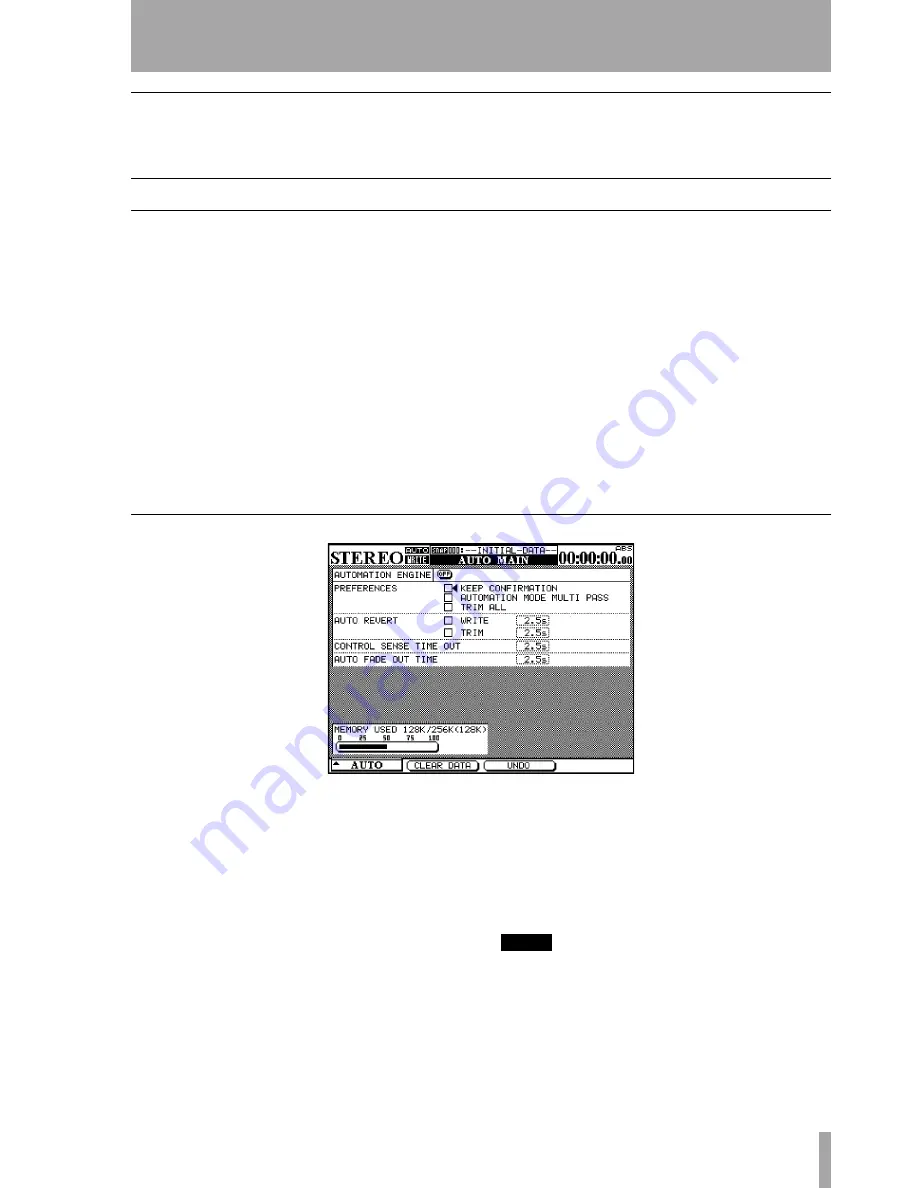
3 – Automation Overview
TASCAM DM-24 Automation
11
Rehearse
Rehearse is a special status that works with Write,
Trim and Static modes. Rehearse allows you to prac-
tice or experiment with mix moves without recording
them.
Displays
The three automation display screens on the DM-24
described below are used for the following purposes:
• Enabling/disabling the automation system
• Setting operational preferences
• Setting the master Auto Fade Out time
• Displaying used/available memory
• Over-riding the automation system’s automatic
mode switching
• Copy/paste of configuration between channels
• Mix file management
In all automation displays, the cursor is moved by
using the cursor keys, located to the lower right of the
display.
Check boxes are enabled/disabled by moving the cur-
sor to the check box then pressing the
ENTER
key.
Time values are entered by moving the cursor to the
desired box, changing the value with the
JOG/DATA
dial then pressing the
ENTER
key. Time values flash
until confirmed with the
ENTER
key.
To access the automation displays, press the
AUTOMATION
key. Repeatedly pressing the
AUTOMATION
key toggles between the displays.
While viewing these, it is also possible to select a dif-
ferent automation display by pressing the leftmost
soft key under the display, then using the leftmost
POD to select a display, and then pressing the left-
most soft key again to view the selected display.
AUTO MAIN
AUTOMATION ENGINE
This on-screen button
enables/disables the DM-24’s automation system.
When enabled,
AUTO
is displayed in the upper left of
the display with the currently selected channel, in all
mixer displays.
No automation data will be recorded or played back
when the automation system is disabled.
When the DM-24 is powered on, the automation sys-
tem will be disabled, even if it was enabled when
powered off.
KEEP CONFIRMATION
When enabled, a pop-up
box will ask for confirmation before performing a
Keep operation. A Keep operation saves a copy of the
current mix into the first memory bank, pushing
older mixes to the next highest memory bank. If all
memory banks are filled, a Keep operation will delete
the oldest mix. All mixes saved using Keep will be
numerically sequenced with highest numbers being
the latest mixes.
The default value of this check box is on (keep con-
firmation is enabled).
NOTE
This is not implemented in Version 1.xx software.
AUTOMATION MODE MULTI PASS
Nor-
mally, the mixer exits Write or Trim mode when it is
no longer receiving time code.
When this check box is enabled, the mixer remains in
Write or Time mode until the mode is manually dis-


























